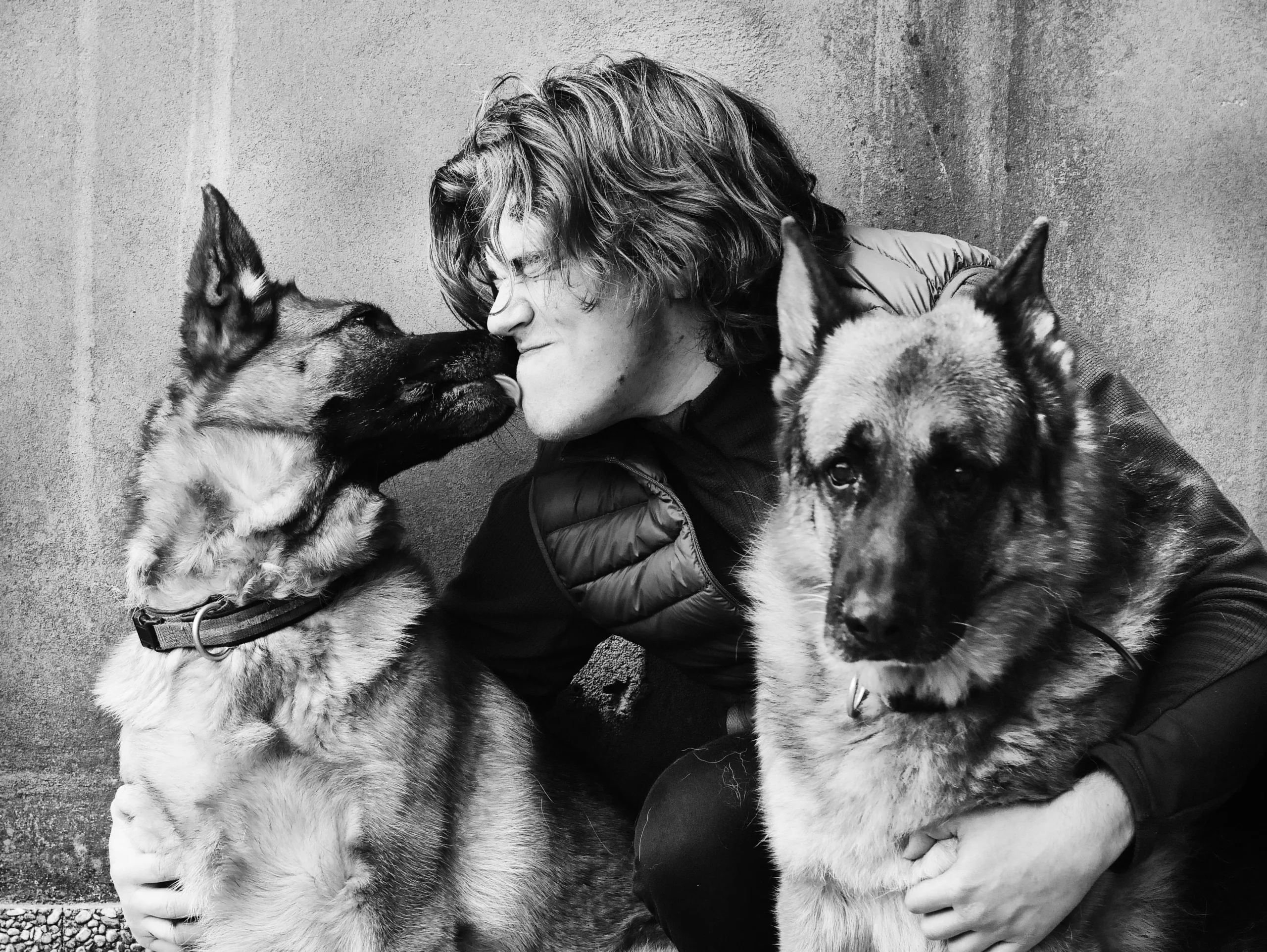Dogs are known for their affectionate nature, and one of the ways they show their love and bond with humans is through licking. While it might be endearing to see your furry friend trying to shower you with affection by licking your mouth and nose, this behavior can leave you wondering about its significance. This article aims to uncover the reasons behind why dogs lick your mouth and nose, delving into their instincts, communication methods, and the bond they share with their human companions.
The Instinctive Behavior of Licking
Licking is a natural behavior in dogs that originates from their early days as puppies. Mother dogs lick their puppies as a way to clean them, stimulate their breathing, and encourage them to eliminate waste. This nurturing behavior is imprinted on dogs from birth, and it carries over into their interactions with humans.
For more about dogs click here
Communication and Bonding
1. Display of Affection
Licking is a way for dogs to express their love and affection toward their human companions. By licking your mouth and nose, your dog is mimicking the grooming behavior they experienced from their mother as a sign of care and attachment.
2. Communication and Social Bonding
Dogs use licking as a form of communication. When dogs lick each other’s faces, it’s a gesture of social bonding and submission. When your dog licks your mouth and nose, they are signaling their trust and willingness to submit to your leadership within the “pack,” which includes your family.
3. Seeking Attention
Dogs are perceptive animals, and they quickly learn that licking gets them attention and rewards. If your dog receives positive reactions from you when they lick your mouth and nose, they are likely to repeat this behavior to gain your attention.
Exploring Sensory Stimulation
Dogs experience the world primarily through their senses, and licking offers them sensory stimulation that goes beyond mere communication and affection.
1. Taste and Smell
Your skin carries scents and residues that your dog can detect through licking. The saltiness of your skin, traces of food, or even residual scents might attract your dog to lick your mouth and nose.
2. Capturing Your Attention
Dogs are observant and quickly learn which behaviors lead to responses from their owners. If your dog notices that licking your mouth and nose makes you react or engage with them, they are likely to continue this behavior as a way to capture your attention.
Understanding and Managing Licking Behavior
While dog licks are often a sign of affection and companionship, there are instances when excessive licking can become a concern.
1. Allergies and Irritations
Excessive licking might indicate allergies, irritations, or discomfort. If your dog is persistently licking a particular area, it’s essential to consult a veterinarian to rule out any underlying medical issues.
2. Setting Boundaries
While dog licks are generally a display of affection, some people may find them uncomfortable. It’s important to establish boundaries and discourage licking if it makes you uncomfortable.
3. Redirecting Behavior
If your dog’s licking becomes excessive or bothersome, redirect their behavior toward positive alternatives. Provide toys, engage in play, or practice training exercises that can help channel their energy and attention in a more constructive way.
FAQs on Why Do Dogs Lick Your Mouth and Nose?
Q1: Why does my dog lick my mouth so much?
Dogs lick your mouth as a sign of affection, communication, and social bonding. It mimics their natural instinct to groom and care for their pack members.
Q2: Why does my dog want to lick up my nose?
Dogs are drawn to the scents and residues on your skin. Your nose may carry intriguing smells that attract your dog’s curiosity.
Q3: Why does my dog lick my eyes, nose, and mouth?
Dogs use licking as a way to communicate, bond, and explore sensory stimuli. Licking these areas might be a combination of affection and curiosity.
Q4: Do dog licks mean kisses?
In a sense, dog licks can be considered a form of kisses. Dogs express their affection and attachment through licking, similar to how humans show affection through kisses.
Q5: Do dogs feel love when you kiss them?
While dogs don’t interpret kisses in the same way humans do, they associate physical touch and positive interactions with affection. Your dog’s response to your kisses reflects their emotional bond with you.
Embracing Canine Affection
Understanding the reasons behind your dog’s licking behavior can deepen your bond with your furry friend. From imitating their mother’s nurturing actions to establishing social bonds and seeking sensory experiences, licking serves various purposes in a dog’s world. Embrace this form of affection while ensuring that your dog’s behavior remains balanced and within the bounds of your comfort. If you have concerns about excessive licking or any related health issues, consulting a veterinarian is a prudent step in providing the best care for your beloved companion.
Click here for more
